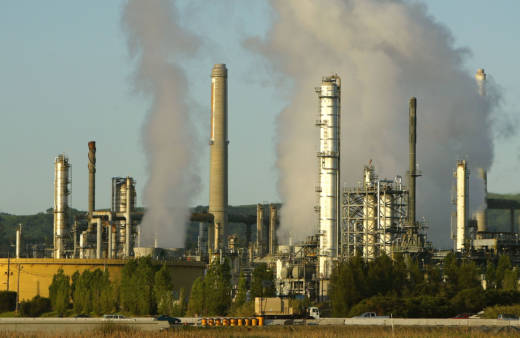The violations included penalties for exceeding sulfur dioxide and hydrogen sulfide release limits, broken tank seals and overdue emission leak tests.
Four of the violations stemmed from an incident on Dec. 19, 2016, when parts of the refinery lost power. The outage forced the facility to flare off nearly 20 tons of gases and sent flames and black smoke into the sky.
The incident prompted local health officials authorities to issue an hours-long health advisory for people near the facility.
The problem began when electrical engineers troubleshooting a problem with an alarm accidentally tripped a circuit breaker connected to a substation that feeds power to the refinery.
The refinery later reported that a significant portion of the gas sent to its flares was hydrogen sulfide. When that gas burns through flaring it turns into sulfur dioxide, a pollutant that can harm the respiratory system and make breathing difficult. High levels of sulfur dioxide can damage trees and plants, and it also contributes to the formation of acid rain.
The air district fined Shell $20,000 for releasing sulfur dioxide into the air for four hours, according to air district spokesman Ralph Borrmann. The agency issued three $10,000 fines against the company for other emissions from three of the facility’s boilers, Borrmann said.
Shell says it has made fixes to prevent a repeat of the December 2016 episode.
“Even though these violations did not result in significant impacts to people or the environment, we take them seriously and aim to prevent them from happening again,” said the Martinez refinery’s spokeswoman, Ann Notarangelo, in an emailed statement.
“The Bay Area is home to some of the strictest air quality standards in the world, and those standards we embrace,” Notarangelo said. “When we fall short of them, we want to immediately report and correct.”
Last year, after several serious refinery malfunctions at Benicia’s Valero refinery and the Phillips 66 facility in Rodeo, state Sen. Bill Dodd, D-Napa, proposed tripling many fines for refineries that violate air quality laws.
Two Bay Area mayors and environmental groups said the proposal was too weak, and the Western States Petroleum Association, which represents the state’s major oil companies, opposed it as unnecessary.
The bill was killed before it received its first hearing.
